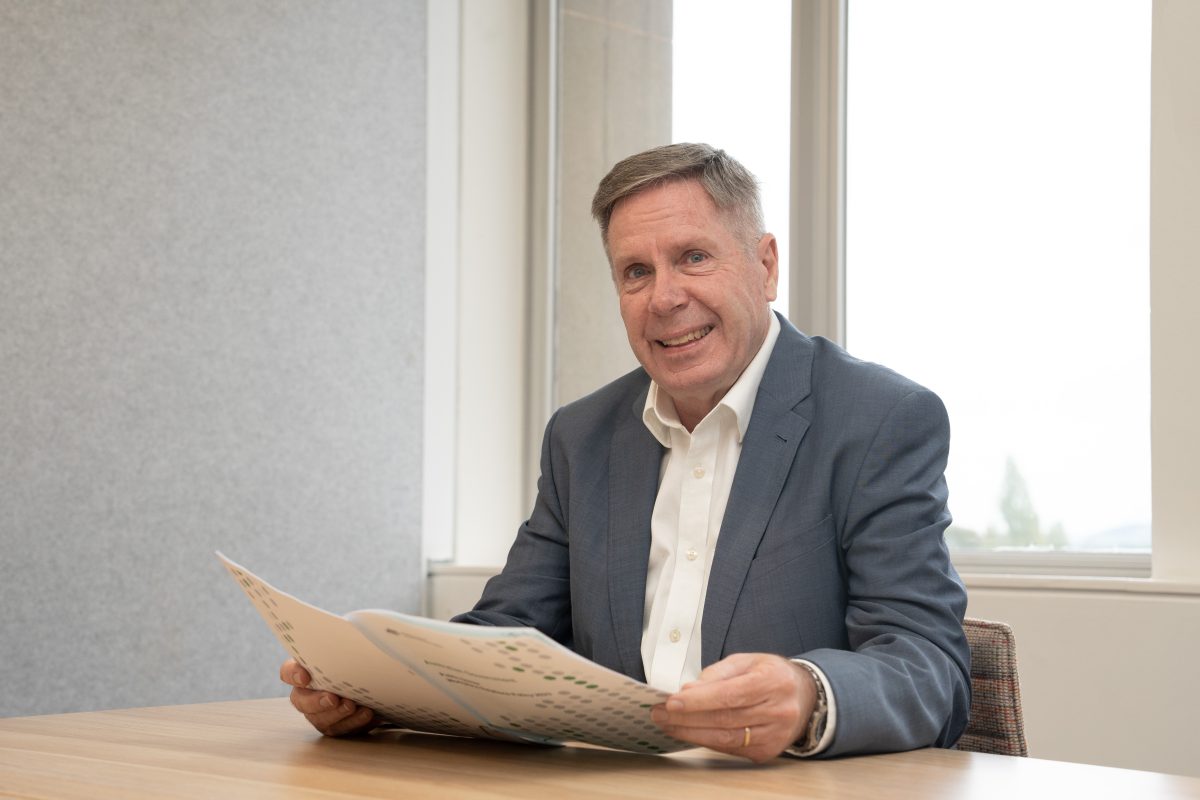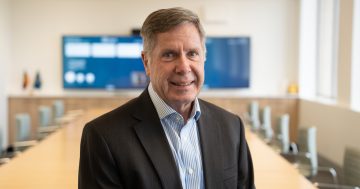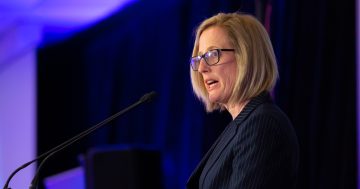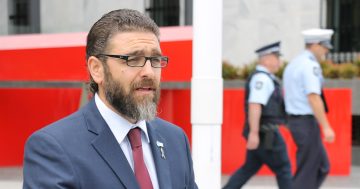
Australian Public Service Commission chief negotiator Peter Riordan has left the federal government for a post in the NSW state government. Photo: Supplied.
The federal government’s industrial relations boss for its own workforce has left the building and secured a top-notch job in the NSW state government.
Peter Riordan, the Australian Public Service Commission’s chief negotiator with its Workforce Relations Taskforce, has resigned his deputy commissioner position to head up the NSW Department of Education as its executive director.
Mr Riordan was the federal government’s face of the long and arduous negotiations over APS wages and conditions.
He played hardball and secured a strong outcome for the government and its coffers while also conceding a number of significant wins for the Community and Public Sector Union.
He didn’t let the CPSU get anywhere near its demand for a 20 per cent pay rise, however, instead reaching agreement on an 11.2 per cent raise over three years.
He leaves the APSC pleased with his efforts, posting on his LinkedIn page over the weekend the successes of the APS bargaining round.
“The Fair Work Commission has now approved all enterprise agreements covering 103 individual Australian Public Service agencies, providing increases in real pay and contemporary employment conditions for 170,000 employees,” he said.
“These agreements are the outcome of many months of bargaining during 2023, based on the government’s policy to enhance the APS as a model employer and reduce the disparity between agencies.
“Over the decades, different pay scales and working conditions had developed across agencies. Through the APS-wide bargaining process, we were able to negotiate over 50 common conditions with significant enhancements to flexible working arrangements, paid parental leave and personal leave.
“We also delivered additional pay increases for staff working in agencies where pay scales had been suppressed previously.
“Staff in every agency delivered a resounding ‘yes’ vote with almost every agreement supported by well over 90 per cent of voting staff.
“It was a team effort, and I thank the staff at the Australian Public Service Commission who worked tirelessly to support the central bargaining.
“We received invaluable assistance from our small group of employer bargaining representatives and all agency lead negotiators.
“The ongoing engagement and professionalism of the various unions and over 285 individual employee bargaining representatives was crucial to the successful outcome.”
The post was greeted with numerous congratulatory messages, including one from Jillian Prideaux, the director of the APSC’s Workplace Relations Bargain Taskforce.
“Thank you for your vision and leadership, Peter. We all learnt so much working for you,” she wrote.
“I’m excited about the changes this work will make for the APS going forward.”
The Australian Federal Police Association, however, is holding out against the 11.2 per cent pay increase for the members of its non-APS agency.
AFPA president Alex Caruana said the union is recommending its members vote ‘no’.
“As the proposed AFP EA stands, we strongly believe members are not getting a fair deal and that the Australian Federal Police, Australian Public Service Commission and Federal Government need to do better,” he said.
“Only recently, the Federal Government rubber-stamped a $6000 one-off payment to Air Services Australia aviation firefighters.
“The AFP is offering its members an $871 one-off payment as an inducement to vote ‘yes’ before 25 May 2024.
“Over the last few weeks, we have seen AFP officers at the forefront of counter-terrorism operations.
“The Prime Minister of Australia, Anthony Albanese, explicitly stated that he has faith in the AFP to do their work and will provide them with every support.
“Action is louder than words. By guaranteeing that AFP police officers will remain among the lowest base-paid police officers in the country with the most recent offer, it is reasonable to argue that the Federal Government, the AFP and the APSC have not supported the AFP workforce of police officers, protective service officers, and unsworn members.
“The entire workforce of the AFP are not traditional public servants. AFP members are the most scrutinised employees in the Federal Government. All members must maintain a security clearance, are regularly drug tested, and can be integrity tested.
“Parliamentarians and their staff do not have this scrutiny.”



















